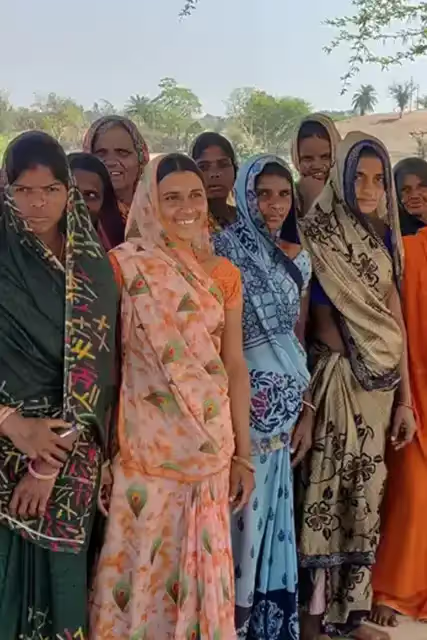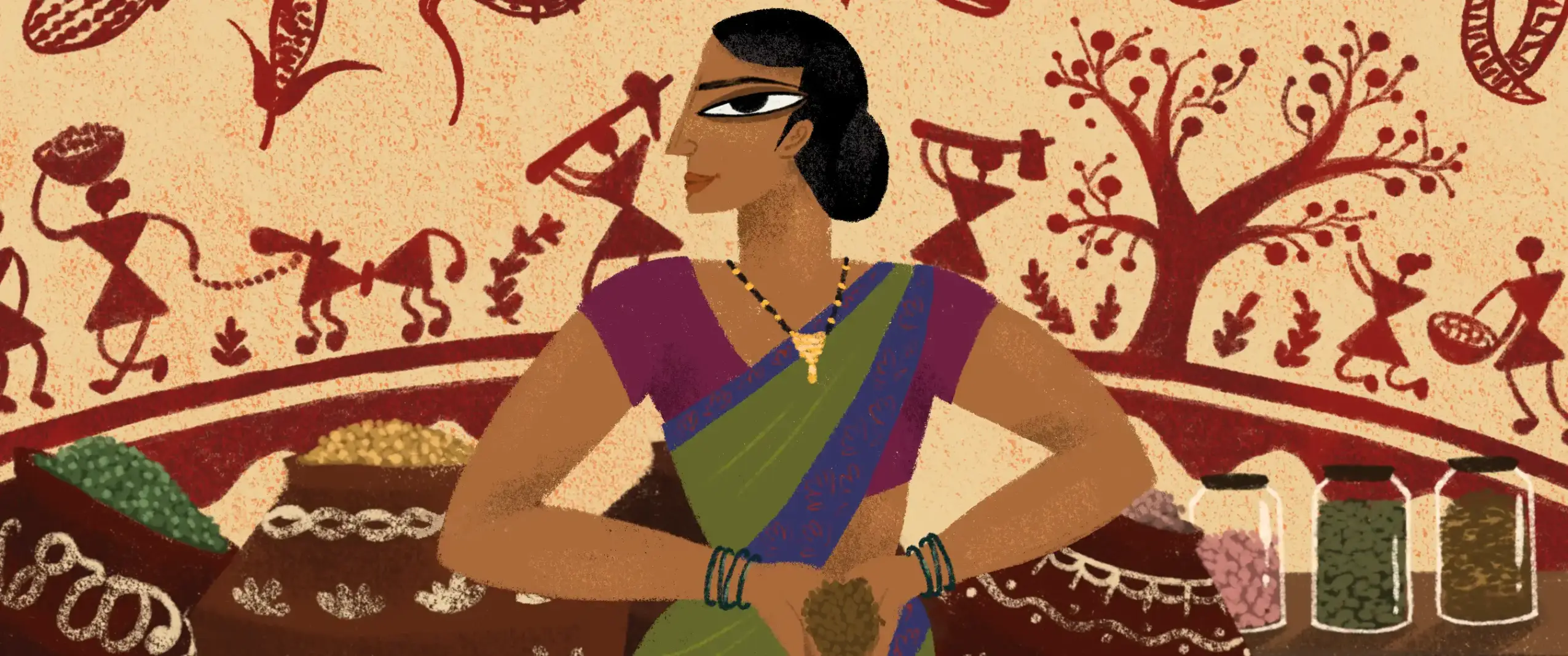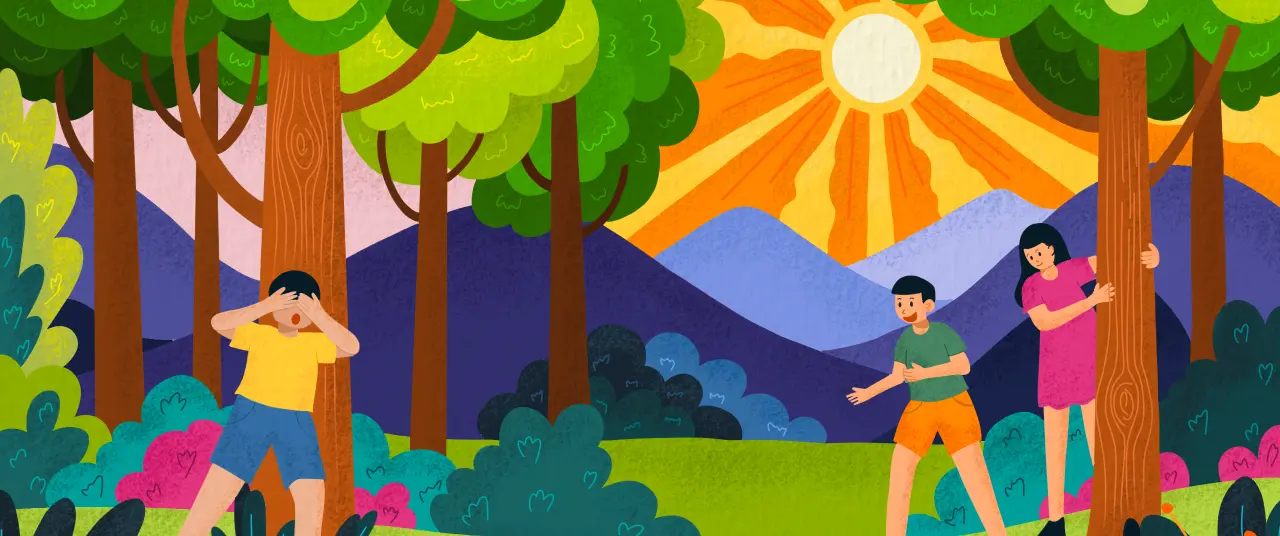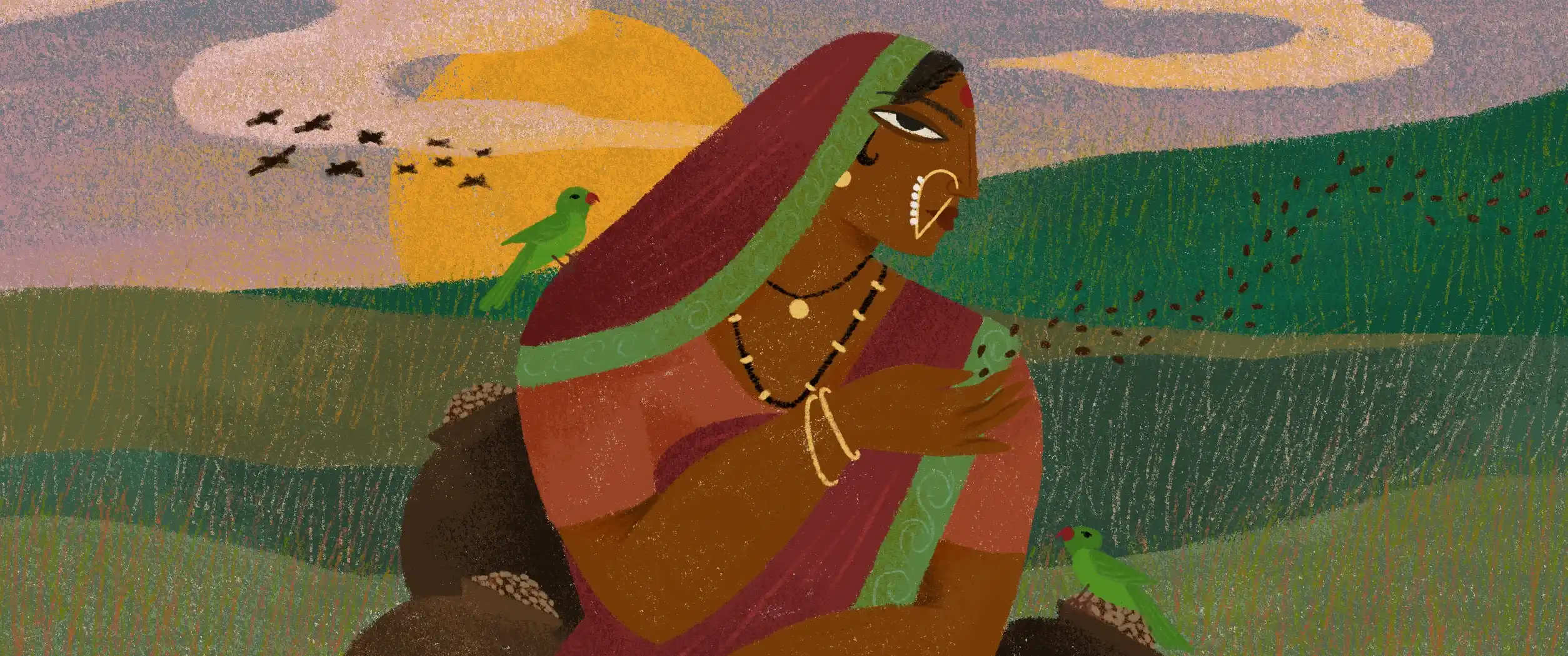Vaagdhara aids farmers in leaving migrant work behind to build farms






Amrit Lal, a Bhil tribal farmer from Bhundri village in Rajasthan's Banswara district, faced a harsh reality when prolonged drought forced him to work as a migrant labourer in distant cities. His farm, neglected in his absence, deteriorated. What was meant to be a temporary shift seemed to become permanent, despite the exploitative conditions and Amrit's dissatisfaction with urban work.
During a brief visit home, members of the voluntary organisation Vaagdhara approached Amrit. They offered support if he wanted to return to rural life. Amrit welcomed this opportunity and seized it.
Revival of farm
A few years later, Amrit's two-acre farm is thriving with diverse crops, particularly vegetables and fruits. He's known for his dedication to natural farming and tree planting, inspiring local environmental efforts. His work earned him the Ummedpur Lodh Environmental Award. Both Amrit and his wife Surta are happy with their return to rural life and are determined to continue improving their farm.

Vaagdhara's role
Amrit is one of many farmers Vaagdhara has helped transition from migrant labour back to sustainable rural livelihoods. Jayesh Joshi, the coordinator of Vaagdhara, said the organisation’s efforts focus on rediscovering and strengthening the traditional food and farming systems of Bhil and related tribal communities.
Vaagdhara works with tribal communities in about 100 rural settlements across Rajasthan, Madhya Pradesh, and Gujarat. When Vaagdhara began its work two decades ago, the organisation invested time in understanding the local people, their strengths, and their needs.
Historical challenges
Participatory research revealed that the tribal communities were familiar with a rich variety of crops, including 26 cereals (such as millets), 28 roots and tubers, 40 vegetables, and 45 fruits. Their traditional farming system was marked by circularity, minimising waste, and maintaining soil fertility. After spending a lot of time with these communities, activists realised that their problems weren't because they were doing something wrong, instead, were caused by outside influences that had damaged their traditional ways of doing things.
Colonial rule and local kingdoms exploited these communities. Despite revolts led by respected figures like Govind Guru, the sustainable traditional system continued to erode.
Independence brought some relief, but new bureaucracies often misunderstood and undervalued traditional systems, equating them with backwardness. They imposed technologies like those of the Green Revolution, which were unsuitable and led to debt, further reducing the communities’ ability to cope with droughts, and forcing many into exploitative migrant labour.
.avif)
Promoting tradition
In consultation with local communities, Vaagdhara sought to revive the strengths of traditional farming systems, including soil conservation practices and mixed farming. Scientific analysis confirmed the nutritional richness of the leafy and other vegetables traditionally used by the tribal communities, increasing the confidence in their time-honoured practices.
Saving traditional seeds of various crops, including millets, is a key focus for these communities. Over the years, this work has gained momentum as people realise its importance. This June, the efforts peaked with a seeds festival, held across about 90 decentralised meetings in different village clusters. Farmers brought their saved traditional seeds to these gatherings, discussing the benefits and features of different varieties and exchanging seeds with one another.

While all the farmers were enthusiastic, women were especially excited since they have traditionally been responsible for seed-saving and possess extensive knowledge about it. Many participants suggested making the seeds festival an annual event.
Earlier, a traditional food festival was organised with the active involvement of women and children. Held at the village level, these meetings highlighted the high nutritional quality of traditional foods and the need to protect them from the onslaught of junk food. Recipes combining taste and nutrition were shared, and dishes were cooked on the spot, delighting the children in particular.
The spread of natural farming has been crucial in reviving traditional farming strengths, significantly reducing costs and improving the quality of produce.
%2520copy.avif)
Empowering women
Women have responded positively to these initiatives. Empowerment groups, or saksham samoohs, have been established in several villages to advance sustainable livelihoods for women. Kanchan, the coordinator of one such group in Nagli Sera village (Banswara district), says they meet regularly to discuss how to advance village development collectively. Susheela, a group member, notes that apart from salt and edible oil, they meet all their food needs within the village. Kanku Bai is particularly skilled in identifying and saving various seeds.
This movement is part of a broader vision rooted in the concept of gram swaraj, which seeks to make villages as self-reliant as possible in meeting their food, farming, and other needs. The approach traces its origins to Mahatma Gandhi’s emphasis on self-reliant rural communities during the freedom movement. Organisations like Vaagdhara are now taking this forward in contemporary contexts by emphasising natural farming, mixed cropping with millets, fruits, and vegetables, and the use of non-cultivated foods.
This approach not only provides more nutritious and safe food but also reduces farmers’ costs, shielding them from debt. Mixed cropping and non-cultivated foods are also vital assets during droughts. This system is well-suited for climate change adaptation and, with its focus on reducing fossil fuel use, increasing tree cover, and improving soil organic content, also supports climate change mitigation.
Explore other topics
References




.avif)






.png)